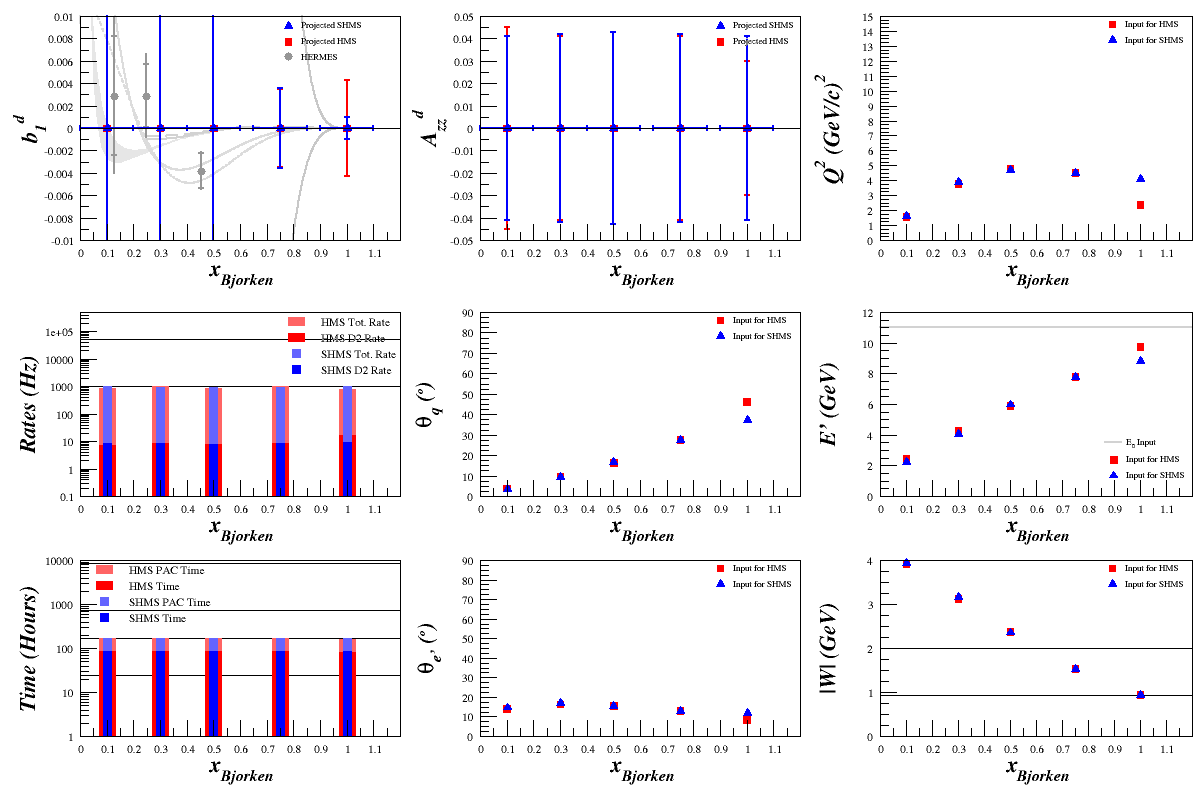Difference between revisions of "Elong-13-04-24"
From HallCWiki
Jump to navigationJump to search| Line 32: | Line 32: | ||
:→ F1 and F2 are now calculated using the [http://arxiv.org/abs/1203.2262 Bosted fits], which lets us extend into a higher x range | :→ F1 and F2 are now calculated using the [http://arxiv.org/abs/1203.2262 Bosted fits], which lets us extend into a higher x range | ||
::→ It is valid for 0<''W''<3.2 GeV and 0.2<''Q''<sup>2</sup><5 GeV<sup>2</sup> | ::→ It is valid for 0<''W''<3.2 GeV and 0.2<''Q''<sup>2</sup><5 GeV<sup>2</sup> | ||
| + | :→ The [File:azz_rates.pdf | rates note] has been updated to fix the sign problems that Oscar and Dustin noted | ||
Revision as of 09:41, 25 April 2013
Rates Update
→ For the plot below, I assume the following:
Target Material ND3 Target Length 3 cm Pzz 20% E0 11 GeV xBjorken 0.1, 0.3, 0.5, 0.75, 1.0 Q2 Variable θq Calculated θe' Calculated E' Calculated W Calculated
- → Total rates have been included, and are shown plotted with the D2 rates
- → Error bars shown are statistical only
- → I found a slight bug from previous calculations: I was assuming the time output was in hours, but it was in fact in days
- → This has now been corrected, but all previous time calculations are under-estimated by a factor of 24
- → F1 and F2 are now calculated using the Bosted fits, which lets us extend into a higher x range
- → It is valid for 0<W<3.2 GeV and 0.2<Q2<5 GeV2
- → The [File:azz_rates.pdf | rates note] has been updated to fix the sign problems that Oscar and Dustin noted
No Prescales, Max rate = 1kHz
--E. Long 15:49, 18 April 2013 (UTC)
